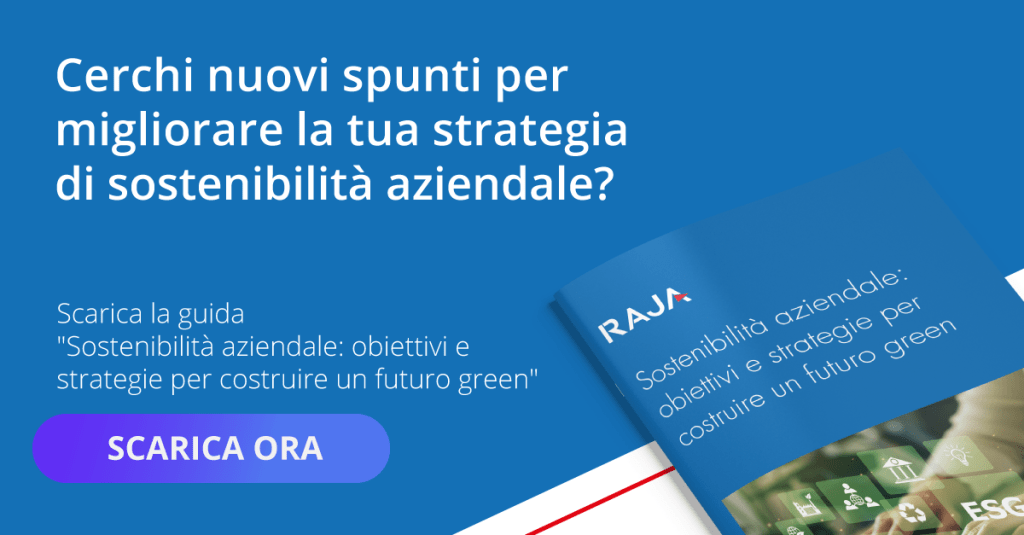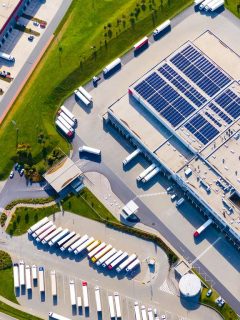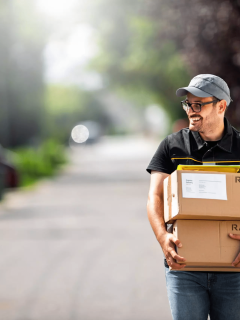Artificial Intelligence as a catalyst for the circular economy
In the global attempt to move from a linear to a circular economy, theartificial intelligence (AI) is playing a key role. L’circular economy aims to reconfigure economic activities around the recovery and recycling of resources, creating a closed loop that minimises wasteHowever, the transition is hampered by challenges such as the low residual value of used products, the difficulty in collecting and separating materials and the lack of traceability in recycling processes.
Extending product life
L’AI can extend the useful life of products, for example, through over-the-air over-the-air software that maintain access to app ecosystems and new features, increasing the residual value of products.
The updates over-the-air (OTA) software updates are software updates for electronic devices, such as smartphones, tablets, computers and even car components, that are sent and installed remotely without the need to connect the device to other hardware via a cable.
This technology allows manufacturers to quickly and easily distribute software improvements, security fixes and new features directly to users’ devices, who can often download and install these updates via Wi-Fi or mobile networks.
Improving waste management through artificial intelligence: a practical example
The innovation brought about by artificial intelligence in the field of material efficiency manifests itself in revolutionary solutions for management and recycling of resources. A case in point is Hera, a leader in the recycling sector in Italy, which has integrated AI in partnership with IBM. This partnership has led to the development of an advanced waste collection systemwhere video cameras installed on trucks automatically identify recyclable materials, thanks tomachine learning. This innovative technology not only optimises the sorting process, but also increases public awareness of correct waste separation.
The project focused on theadaptation and theextension of AI technology from an experimental to a large-scale operational context. Using IBM Garage, Hera designed an AI system that detects effectively the waste patternsimproving both the quality and efficiency of the recycling process.
A distinctive aspect of this technology is theanalysis of waste directly from the trucks, speeding up the evaluation and increasing accuracy compared to conventional methods. In addition, Hera uses this data to develop targeted information campaigns, further optimising waste collection and recycling.
This application of AI in the waste sector underlines its potential in terms of improving the use of resources e reducing waste. Hera’s example shows how artificial intelligence can be used to address crucial challenges in the field of sustainability and material efficiency, promoting more responsible and innovative environmental management.
Use of recycled materials
The use of recycled materials reduces dependence on virgin materials and lowers carbon intensity in sectors that are difficult to decarbonise. How can AI help in this process?
As we have seen, it can help in the identification and selection of the best materials to recycle, but not only:
- Optimisation of logistical processes: AI can optimise recycling logistics, for example by planning more efficient routes for collecting waste or transporting recycled materials to processing plants. This reduces operating costs and increases the amount of materials that can be collected and processed.
- Development of new recycling techniques: AI can help in the research and development of new recycling techniques. For example, it can predict which combinations of materials might be most effective or discover new methods to process materials that are difficult to recycle.
Investing in digitisation-enabled solutions is a key step to fully exploit the economic opportunities of the circular economy, overcoming traditional barriers and creating new markets and business models.
Process digitisation and the value chain in the circular economy
Process digitisation is a key driver in the ecological transition, especially in the circular economy. This approach transforms the traditional value chain, making business processes more sustainable and efficient.
The Robotic Process Automation (RPA) for example, is a technology that automates repetitive business tasks and processes through the use of software robots, also known as ‘bots’. These bots are designed to perform a series of tasks previously performed by humans, imitating human actions and interacting with computer systems in a similar way to a human user.
The role of digitisation in corporate sustainability
The corporate sustainability has become a primary objective for organisations aiming to reduce their environmental impact and improve the well-being of communities. In this context, the digitisation proves to be a valuable ally.
Digital transformation not only optimises processes and increases efficiency, but also cuts costs and minimises the use of physical resources. Tools such as IoT reduce energy consumption, while augmented and virtual reality limit the need for physical products, and blockchain offers transparency that encourages sustainable practices throughout the supply chain.
For small companiesdigitisation means dematerialisation of documents and reduced consumption of paper and toner, contributing to a lower environmental impact. Working methods are also being transformed: the digital signature and the cloud computing make it possible to work remotely, reducing travel and energy consumption.
In short, digitisation is not just for large industries; it is a transversal tool that, if used well, can support sustainability at all company levels, creating benefits that extend to the whole of society.
Technological innovation and corporate sustainability
Technological innovation is a pillar of corporate sustainability. The use of digital technologies, such as artificial intelligence and augmented reality systems, enables companies to optimise the use of recycled materials and minimise their environmental impact. These innovations support the digital transition, enabling more efficient resource management and promoting economic sustainability.
What is the Digital Product Passport
An emerging concept in sustainable digitisation is the Digital Product Passport. This digital tool provides detailed information on products, from provenance of materials to their recyclabilitythus supporting informed decisions and traceability in the supply chain. The digital product passport is a significant step towards greater transparency and environmental responsibility.
Regarding dissemination in Italyas in many other countries, the Digital Product Passport concept is still in a development and implementation. Some sectors may be more advanced in adopting this tool, especially those that are strictly regulated or those that have a strong focus on sustainability. However, given the increasing emphasis on sustainability and traceability in production and consumption, it is likely that the Digital Product Passport will become more widespread in Italy and Europe in the coming years, especially with the increase in policies of theEuropean Union to promote sustainability and digitisation.
Innovation goes through digitisation with RAJA
In the era of digitisation, the sustainability merges withinnovation to drive an effective ecological transition. RAJAa pioneer in offering solutions for packaging solutionsstands out in the corporate landscape for its commitment to sustainable digitisation. With leading consulting services, RAJA helps companies forecast consumption and optimise order processes through advanced eProcurement solutions.
Digitisation offers a unique opportunity for companies to improve efficiency and reduce environmental impact. RAJA, through the implementation of predictive systemsenables companies to anticipate packaging needsand avoid waste and overproduction. The solution Procure 2 Payis another pillar of RAJA’s strategy to streamline and make the purchasing process more efficient, cutting unnecessary costs and reducing the company’s carbon footprint.
The transition to a more equitable and sustainable society is a shared goal that requires the adoption of digital technologies. As highlighted by recent studies, digitisation can play a crucial role in achieving the sustainability goalsespecially in the food sector and beverages. RAJA is committed to this direction, supporting its customers in realising a greener and more responsible supply chain.
In conclusion, the sustainable digitisation is an indispensable step for companies that want to contribute to the preservation of the planet. With RAJA’s help and expert advice, the road to a greener future is not only possible, but also more efficient and profitable.















